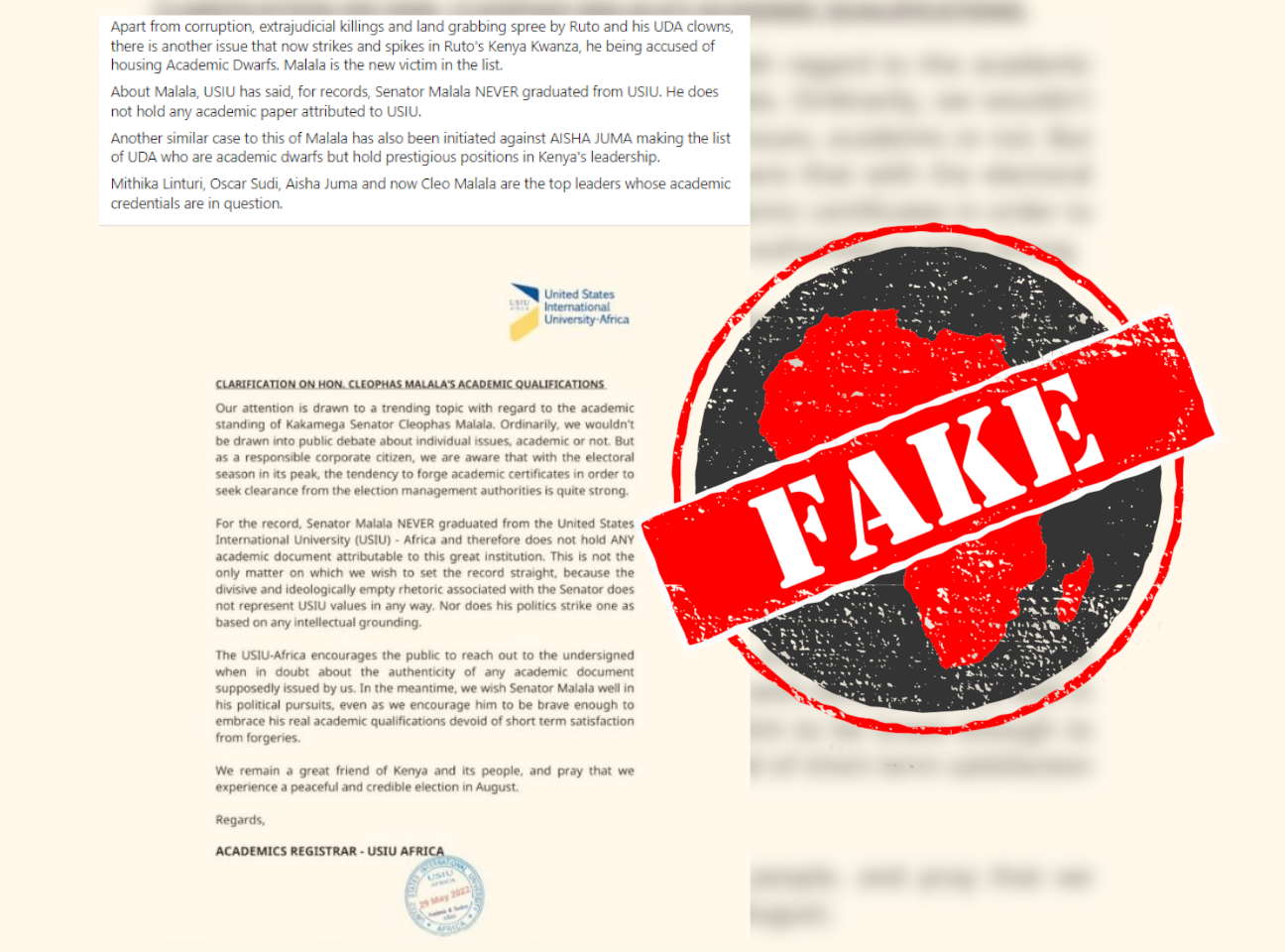The academic qualifications of Cleophas Malala, senator for Kenya’s Kakamega county, have been the subject of recent controversy.
He was forced to apologise after he claimed on 24 May 2022 that the police didn’t necessarily need a higher education, but just “two hands and legs” to do their jobs. The statement drew condemnation from the National Police Service and the government.
And Malala’s bid to run for the governorship of Kakamega in Kenya’s August elections was challenged with the claim that he had forged his academic credentials. Two court petitions tried to stop the electoral commission from accepting Malala’s nomination on the grounds that he didn’t have the required academic qualifications.
On 27 May, he posted several documents, including a degree certificate from the United States International University-Africa (USIU-Africa) in Nairobi, on Facebook.
And the electoral commission cleared him to run for the Kakamega governorship, on 7 June.
But a document going viral on Facebook indicates that Malala never studied at USIU-Africa. It appears to be a press statement by the university, and carries its logo.
“Our attention has been drawn to a trending topic with regard to the academic standing of Kakamega Senator Cleophas Malala. Ordinarily, we wouldn't be drawn into public debate about individual issues, academic or not,” the statement reads.
“For the record, senator Malala NEVER graduated from the United States International University (USIU) - Africa and therefore does not hold ANY academic document attributable to this great institution.”
It accuses the senator of “divisive and ideological empty rhetoric” that “does not represent USIU values in any way”. The statement can be seen here, here, here, here and here.
But is it legit? We checked.

‘Untrue malicious rumours circulating’
On 29 May USIU-Africa posted the statement on its verified Facebook page, stamped “FAKE”.
“You are advised to ignore any untrue malicious rumours circulating online regarding the validity of our degree certificates,” the post reads.
It also adds that “unauthorised use of the university logo and all associated trademarks is an offence” and that the “university reserves the right to take legal action against anyone using our logo and associated trademarks in such a manner”.
Republish our content for free
For publishers: what to do if your post is rated false
A fact-checker has rated your Facebook or Instagram post as “false”, “altered”, “partly false” or “missing context”. This could have serious consequences. What do you do?
Click on our guide for the steps you should follow.
Publishers guideAfrica Check teams up with Facebook
Africa Check is a partner in Meta's third-party fact-checking programme to help stop the spread of false information on social media.
The content we rate as “false” will be downgraded on Facebook and Instagram. This means fewer people will see it.
You can also help identify false information on Facebook. This guide explains how.





Add new comment